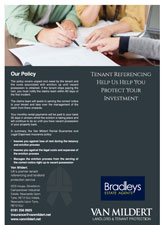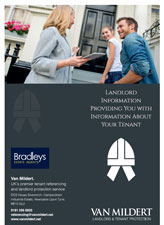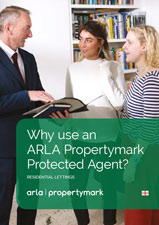“The agents made the letting of my property a positive experience"
As a Landlord you are responsible by law for most repairs and maintenance relating to the structure of your property.
For further clarification on any of the content on this page, please contact your local office or one of our specialist teams on 01395 223383.
Below are some of the legal responsibilities under the following legislation:

Gas Safety (Installation and Use) Regulations 1994
These regulations place a requirement upon Landlords to have all gas appliances that are installed in any rented property checked and certified annually by a suitably qualified ‘Gas Safe’ registered engineer.

Electrical Equipment (Safety) Regulations 1994
These regulations state that all electrical equipment over 50 volts must be safe and also to satisfy requirements relating to sleeving of pins on plugs, colour coding main leads, labelling of cables and fusing information. Although the law does not say that the electrical equipment has to be tested, the best way to protect yourself from prosecution is to have all relevant appliances checked and certified by a suitably qualified Electrical Contractor.
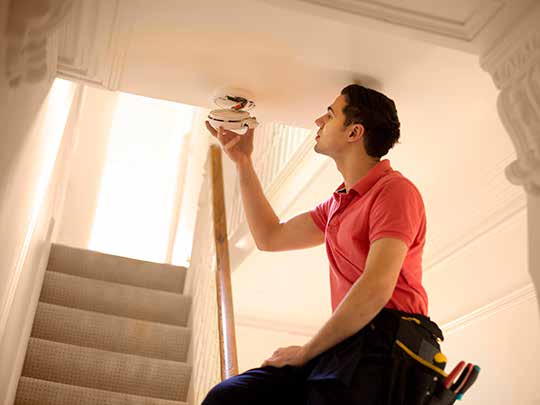
Smoke Alarm & Carbon Monoxide Alarm (England) Regulations 2015
These regulations require a Landlord to supply a smoke alarm on every floor of a let property and a CO Monitor in every room where a solid fuel burning appliance is situated.

The Health and Safety at Work (etc) Act 1974
The Control of Substances Hazardous to Health Regulations 2002 place an obligation upon Landlords to assess the risk of exposure to Legionnaires Disease.

Fire and Furnishings (Fire) (Safety) (Amendment) Regulations 1993
The regulations require that all soft furnishings, upholstery or upholstered furnishings - that includes beds, mattresses, pillows, settees, armchairs, scatter cushions, bean bags and so on - should conform and comply with the following three tests: The Cigarette Test, The Match Test and The Ignitability Test.
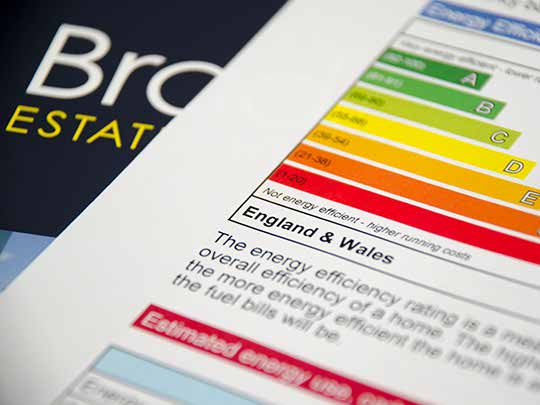
The Energy Performance of Buildings (England & Wales) Regulations 2012
These regulations were initiated in 2007 and amendments came into force in 2013. They state that all properties to be let must have a valid Energy Performance Certificate (EPC) in place. Bradleys have fully qualified Domestic Energy Assessors to undertake this report.
Energy Performance Certificates – MEES - Domestic Regulations
The Energy Efficiency (Private Rented Property) (England and Wales) Regulations 2015, commonly known as the Minimum Energy Efficiency Standards, or MEES, are legal requirements that set a minimum energy standard of an EPC rating of "E" and above for residential properties for let in the private rented sector.
Properties with an EPC rating of less than 'E' must be improved with energy efficiency measures to bring their ratings up to at least an 'E'. Since 1st April 2018, buildings that do not meet the minimum standards cannot be re-let until improvements are made. If owners re-let the property, they will face a penalty fine of up to £5,000.
Exemptions can be registered in certain circumstances. However, these expire after 5 years and do not transfer with a sale of the property to a new owner. By 1st April 2020 it will be illegal to continue to let out a domestic property with an EPC rating of 'F' or 'G'
The regulations changed on 1st April 2019. The “no cost to a landlord” rule ceased on 31st March 2019. This rule stated that landlords only needed to fund improvement measures using grants, ECO funding and/or Green Deal Finance. This is no longer the case.
In summary:
- Since 1st April 2019 a price cap of £3,500 (including VAT) has been introduced.
- If a landlord can improve their property to E for less than £3,500, they will have met their obligation
- Where a landlord is unable to improve their property to E within the £3,500 price cap then they should install all measures which can be installed up to the £3,500 cap and register an exemption
- Expenditure on energy efficiency measures (EEMs) since 1st October 2017 can be counted towards the price cap
- Currently, until 31 March 2020, the regulations apply upon the granting of:
- A new tenancy to a new tenant, and
- A new tenancy to an existing tenant (renewal of a fixed term or rolling over into a Periodic Tenancy)
- • The regulations will apply to ALL privately rented property in scope of the regulations, in line with the existing regulatory “back stop” date of 1st April 2020
If the property that you intend to let out does not have an EPC Bradleys Estate Agents will be delighted to arrange to have one undertaken for you. Please ask for our charges for this work.
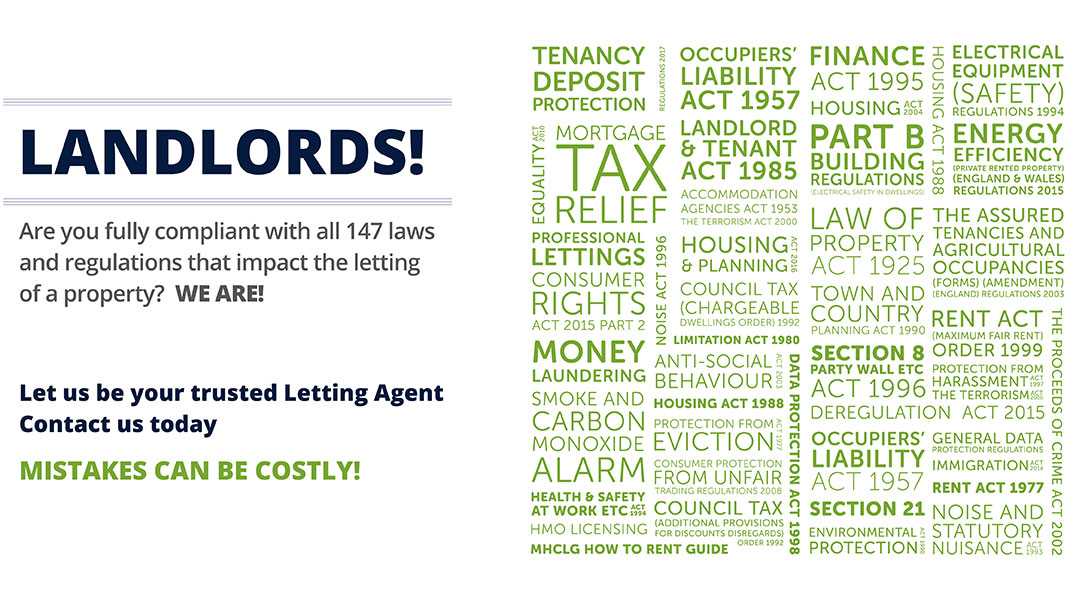
Bradleys can provide quotes and arrange inspections or reports for you on all of the above requirements, to ensure you are fully compliant with the latest legislation.
Book an ApppointmentIt should be noted that when first letting your home you will need to seek the permission of your mortgage lender to let your home and to ensure your building and contents insurers provide adequate cover for rented property. In the case of leasehold property, you may also need to request your freeholder’s permission to let as necessary. Again, we shall be pleased to give individual advice on such matters.
Tax and the Inland Revenue
As a landlord, regrettably all income received from rented property is classified as unearned income and is therefore subject to tax. However, there are some expenses that attract tax relief. Overseas landlords should note that we are bound by law to deduct and retain tax at the basic rate before forwarding the balance, unless a valid HMRC tax exemption certificate has been received by our offices. In order to benefit from all allowances available we strongly recommend you consult a tax specialist or your local office of the Inland Revenue.
Tenant Deposit Protection Scheme
Deposits held on properties let on an Assured Shorthold Tenancy since April 2007 are required by law to be registered in one of three Government approved schemes. To avoid the financial penalties for failing to register to a scheme, Bradleys register deposits with TDS (The Dispute Service Ltd) at a significantly reduced cost to Landlords.
Please refer to the TDS leaflet ‘What is the Tenant Deposit Scheme?’ click here...

















